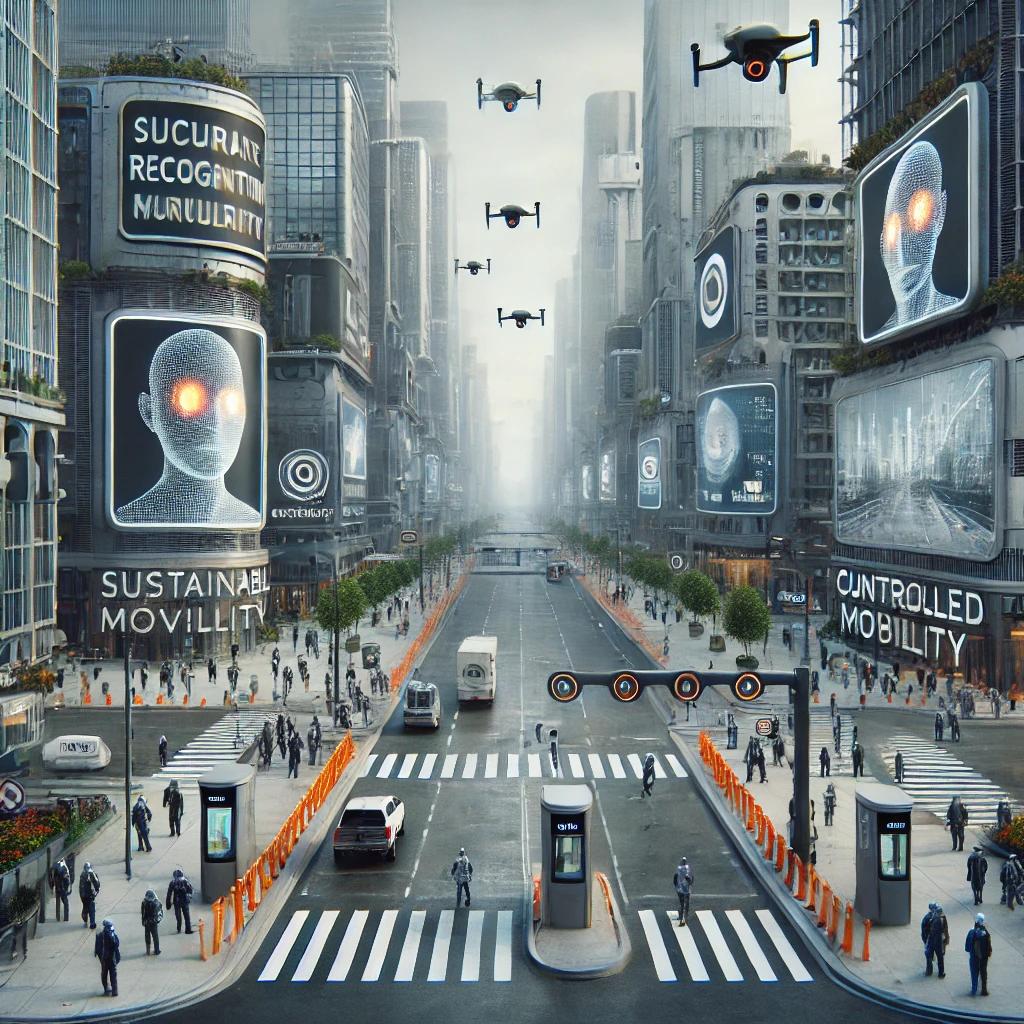
Placated Masses Are Easier To Control
Across the world, governments and urban planners are promoting the concept of 15-minute cities as a solution to climate change, urban congestion, and sustainability. At first glance, these city planning initiatives appear to be about making life more convenient by ensuring all essential services are within a short walk or bike ride from home. However, critics argue that 15-minute cities are actually a stealth move toward mass surveillance, movement restrictions, and digital control of populations.
Are these compact urban zones a utopian vision for sustainability, or are they the groundwork for a technocratic dystopia? In this article, we break down the real agenda behind 15-minute cities, how they tie into globalist plans for population control, and what you can do to resist their implementation.
What Are 15-Minute Cities?
The 15-minute city is an urban planning concept where everything a resident needs—work, groceries, healthcare, education, and recreation—is within a 15-minute walk or bike ride from their home. This concept is currently being rolled out in major cities across the globe, including Paris, London, Melbourne, and Portland (source).
Proponents argue that 15-minute cities will:
- Reduce carbon emissions by limiting car use.
- Improve health and well-being by encouraging walking and cycling.
- Strengthen local economies by promoting small businesses.
However, skeptics point out that 15-minute cities are less about convenience and more about restricting personal freedoms.
How 15-Minute Cities Will Lead to Population Control
While the concept sounds beneficial on the surface, hidden beneath the green agenda rhetoric is a plan that could severely limit personal freedoms and expand government control.
1. Digital Surveillance and Geo-Fencing
- 15-minute cities rely heavily on AI-driven surveillance, geofencing, and smart city technology to monitor movement.
- Governments can track who leaves their designated zones, issuing fines or penalties for “unnecessary” travel.
- These systems mirror China’s social credit score, which rewards and punishes citizens based on compliance (source).
2. Climate Lockdowns & Restricted Travel
- Carbon footprint tracking is already being tested in various countries, meaning your movement could be limited if you exceed your “carbon allowance.”
- France and Oxford, UK, are experimenting with restricting travel beyond designated 15-minute zones, requiring government approval for extended trips (source).
- Similar restrictions were used during COVID-19 lockdowns, setting a dangerous precedent for future climate-related lockdowns.
3. Cashless Societies & Digital ID Integration
- Digital payment systems are being integrated into these cities, paving the way for Central Bank Digital Currencies (CBDCs), which governments can control (source).
- Digital IDs will be linked to movement, purchases, and travel permissions, effectively tying compliance to daily life.
- If the government deems your behavior “non-compliant,” they can restrict your financial transactions.
Who Is Pushing 15-Minute Cities?
The 15-minute city agenda is being aggressively promoted by global organizations and influential elites:
1. The World Economic Forum (WEF)
- The WEF openly supports 15-minute cities as part of its “Great Reset” plan, emphasizing the need to “reshape how people live and move” (source).
- WEF chairman Klaus Schwab has repeatedly stated that the future of urbanization involves “restricting unnecessary travel.”
2. The United Nations (UN)
- The UN’s Agenda 2030 includes urban development initiatives that align with 15-minute cities.
- The UN-Habitat program is leading efforts to implement 15-minute city designs globally (source).
3. National and Local Governments
- Cities like Paris, Melbourne, and London are leading the charge, with local governments passing laws to implement these restrictions.
- Mayors of major cities have formed alliances with globalists to bring 15-minute cities into reality, often without public consent.
How to Resist the Rollout of 15-Minute Cities
If 15-minute cities transition from convenience to control, resisting their implementation will be crucial. Here’s what you can do:
1. Push Back Against Digital ID & Cashless Policies
- Avoid adopting government-mandated digital IDs.
- Support businesses that accept cash and oppose cashless transactions.
2. Demand Transparency from Local Governments
- Attend city planning meetings and question politicians about movement restrictions.
- Expose globalist agendas behind these policies.
3. Support Independent Transportation & Decentralization
- Own a personal vehicle to maintain independence from government-controlled transport systems.
- Support decentralized communities that reject globalist urban policies.
4. Raise Awareness & Share Information
- Share articles and videos exposing the control agenda behind 15-minute cities.
- Encourage community discussions to educate others on the risks involved.
A Smart City or a Digital Prison?
While 15-minute cities are being marketed as a utopian dream, the reality is far more concerning. By integrating surveillance, digital IDs, and movement restrictions, these cities could become testing grounds for globalist control mechanisms.
The next step? Gradual implementation of climate lockdowns, digital currency restrictions, and AI-driven enforcement.
The time to resist is now. Exposing the real agenda behind 15-minute cities and demanding transparency from governments can prevent these policies from becoming permanent.





